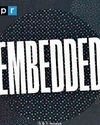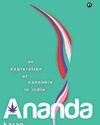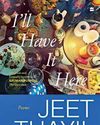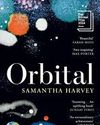
I REALLY believed in that hydro- aeroplane I’d patched together, and I decided it was time to prove its merits by setting a world’s record or two. Nothing like circling the moon, of course—or even the earth.
The year was 1913, and all I wanted to do was to circumnavigate San Francisco Bay. And with the help of two intrepid friends, and the experience I’d acquired working with a couple of brothers named Orville and Wilbur Wright, I succeeded in writing a bizarre footnote in the history of flight.
It all started with the addiction to aviation that gripped so many young Americans after the Wrights’ first flight, at Kitty Hawk. Now at the very peak of their fame, they were being showered with adulation, often by the same people who, a few years before, had ridiculed their claim that they could fly.
Young, fresh out of school, I called in 1910 at the Wright home in Dayton, Ohio, and told Orville I had come from California to work in their flying machine factory. Within few weeks, I was settled in the wing covering department. Eventually, after learning to fly myself, and after a nearly disastrous crash, I decided to design and build a plane of my own—a safe one. For there was no question about it: those early flying machines were dangerous.
With no closed-in fuselage, they consisted of a morass of wooden struts and spars and harp-like wires supporting muslin- or linen-covered wings. A small seat, often just a flat board, was mounted toward the front, and the engine was installed in the open framework.
Denne historien er fra April 2024-utgaven av Reader's Digest India.
Start din 7-dagers gratis prøveperiode på Magzter GOLD for å få tilgang til tusenvis av utvalgte premiumhistorier og 9000+ magasiner og aviser.
Allerede abonnent ? Logg på
Denne historien er fra April 2024-utgaven av Reader's Digest India.
Start din 7-dagers gratis prøveperiode på Magzter GOLD for å få tilgang til tusenvis av utvalgte premiumhistorier og 9000+ magasiner og aviser.
Allerede abonnent? Logg på

ME & MY SHELF
Siddharth Kapila is a lawyer turned writer whose writing has focussed on issues surrounding Hinduism. His debut book, Tripping Down the Ganga: A Son's Exploration of Faith (Speaking Tiger) traces his seven-year-long journey along India's holiest river and his explorations into the nature of faith among believers and skeptics alike.

EMBEDDED FROM NPR
For all its flaws and shortcomings, some of which have come under the spotlight in recent years, NPR makes some of the best hardcore journalistic podcasts ever.

ANURAG MINUS VERMA PODCAST
Interview podcasts live and die not just on the strengths of the interviewer but also the range of participating guests.

WE'RE NOT KIDDING WITH MEHDI & FRIENDS
Since his exit from MSNBC, star anchor and journalist Mehdi Hasan has gone on to found Zeteo, an all-new media startup focussing on both news and analysis.

Ananda: An Exploration of Cannabis in India by Karan Madhok (Aleph)
Karan Madhok's Ananda is a lively, three-dimensional exploration of India's past and present relationship with cannabis.

I'll Have it Here: Poems by Jeet Thayil, (Fourth Estate)
For over three decades now, Jeet Thayil has been one of India's pre-eminent Englishlanguage poets.

Orbital by Samantha Harvey (Penguin Random House India)
Samantha Harvey became the latest winner of the Booker Prize last month for Orbital, a short, sharp shock of a novel about a group of astronauts aboard the International Space Station for a long-term mission.

She Defied All the Odds
When doctors told the McCoombes that spina bifida would severely limit their daughter's life, they refused to listen. So did the little girl

DO YOU DARE?
Two Danish businesswomen want us to start eating insects. It's good for the environment, but can consumers get over the yuck factor?

Searching for Santa Claus
Santa lives at the North Pole, right? Don't say that to the people of Rovaniemi in northern Finland